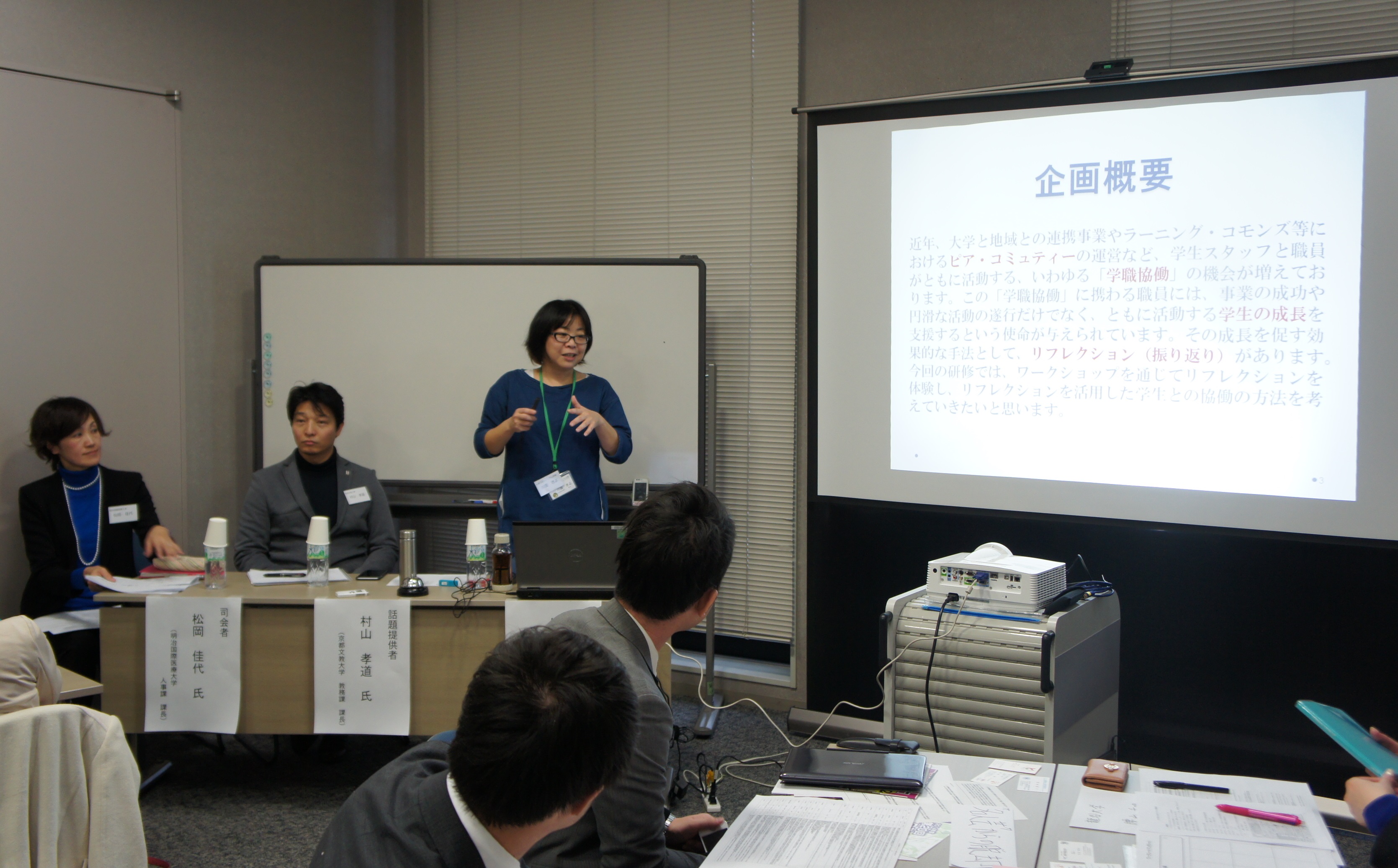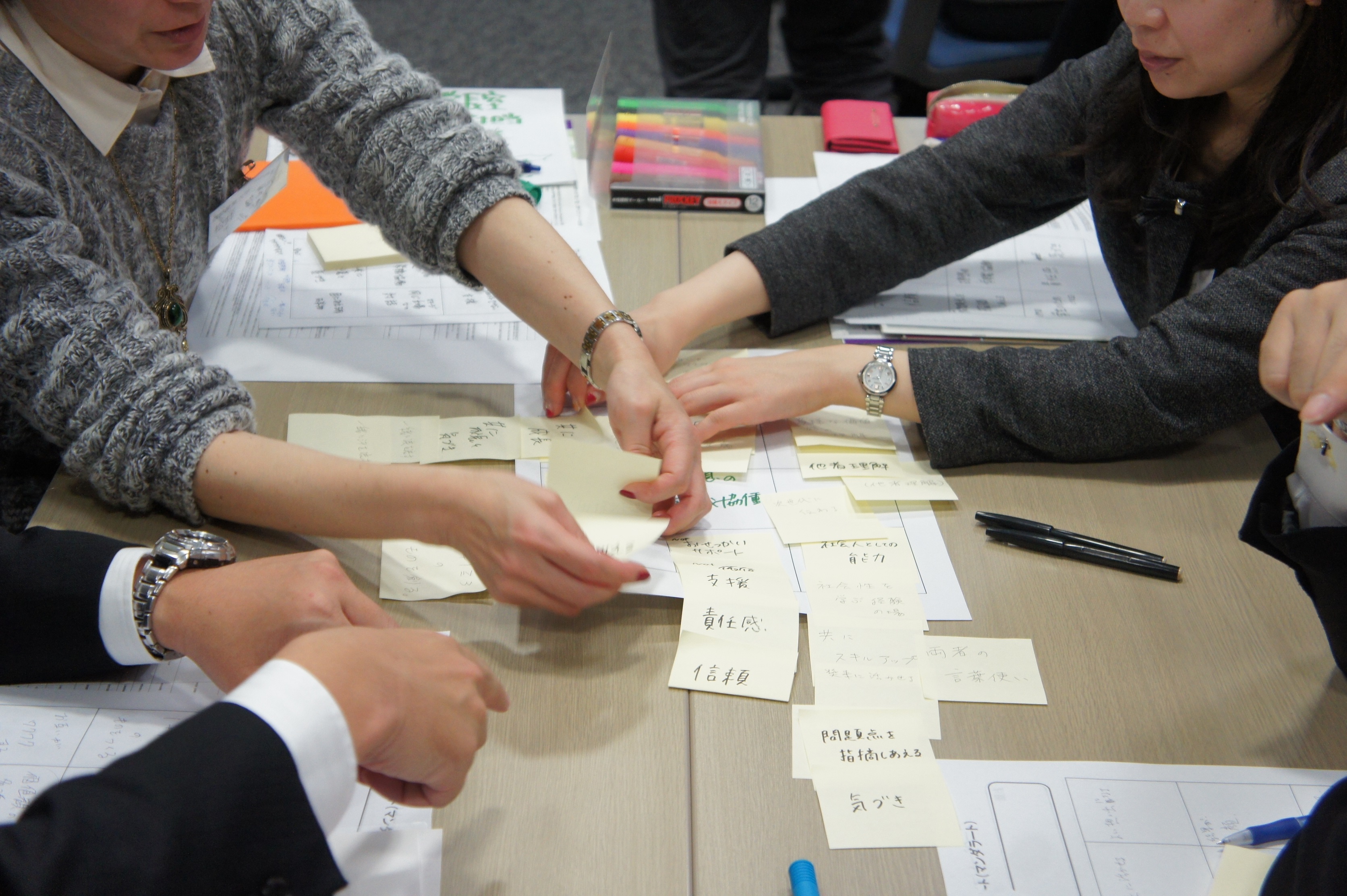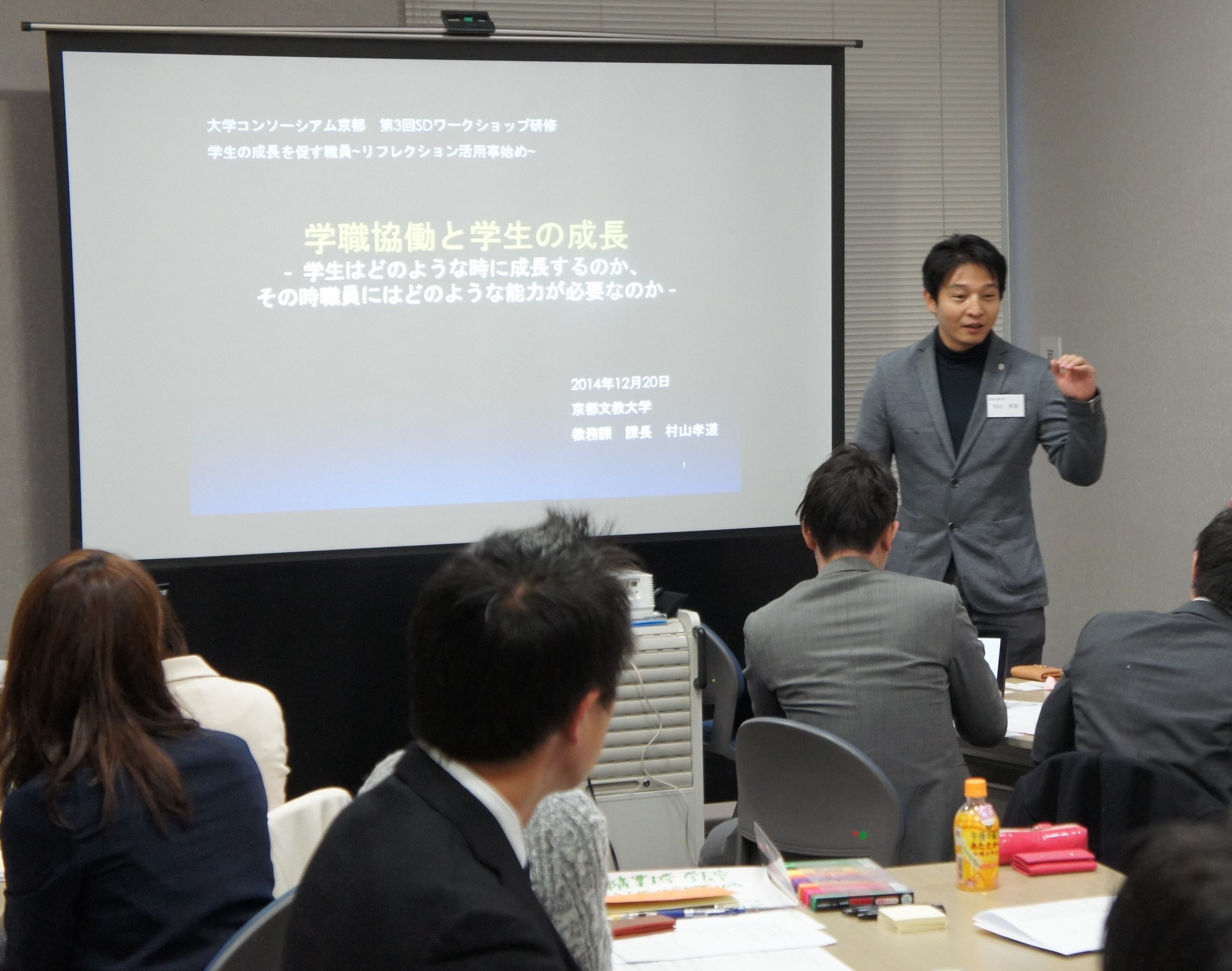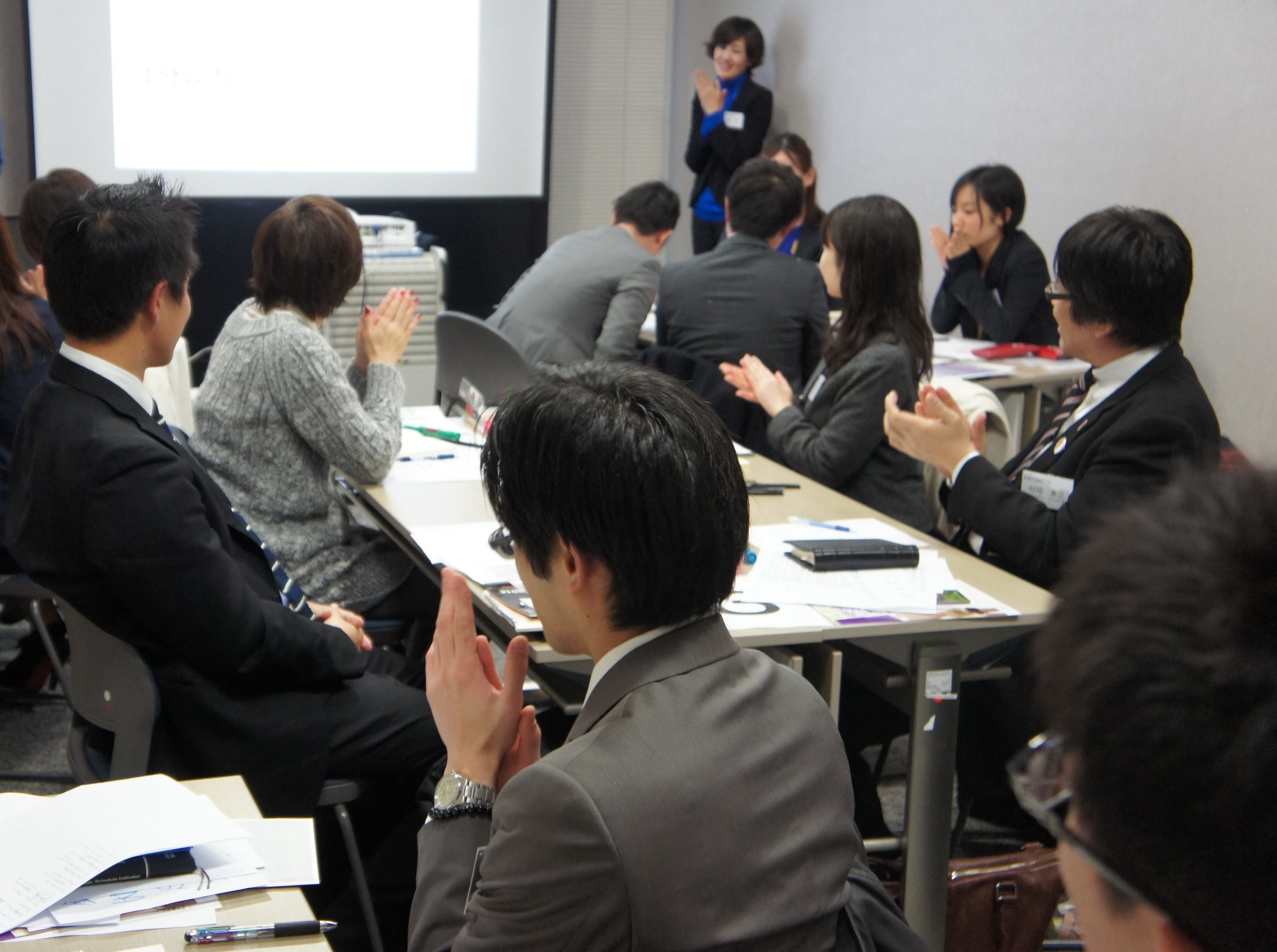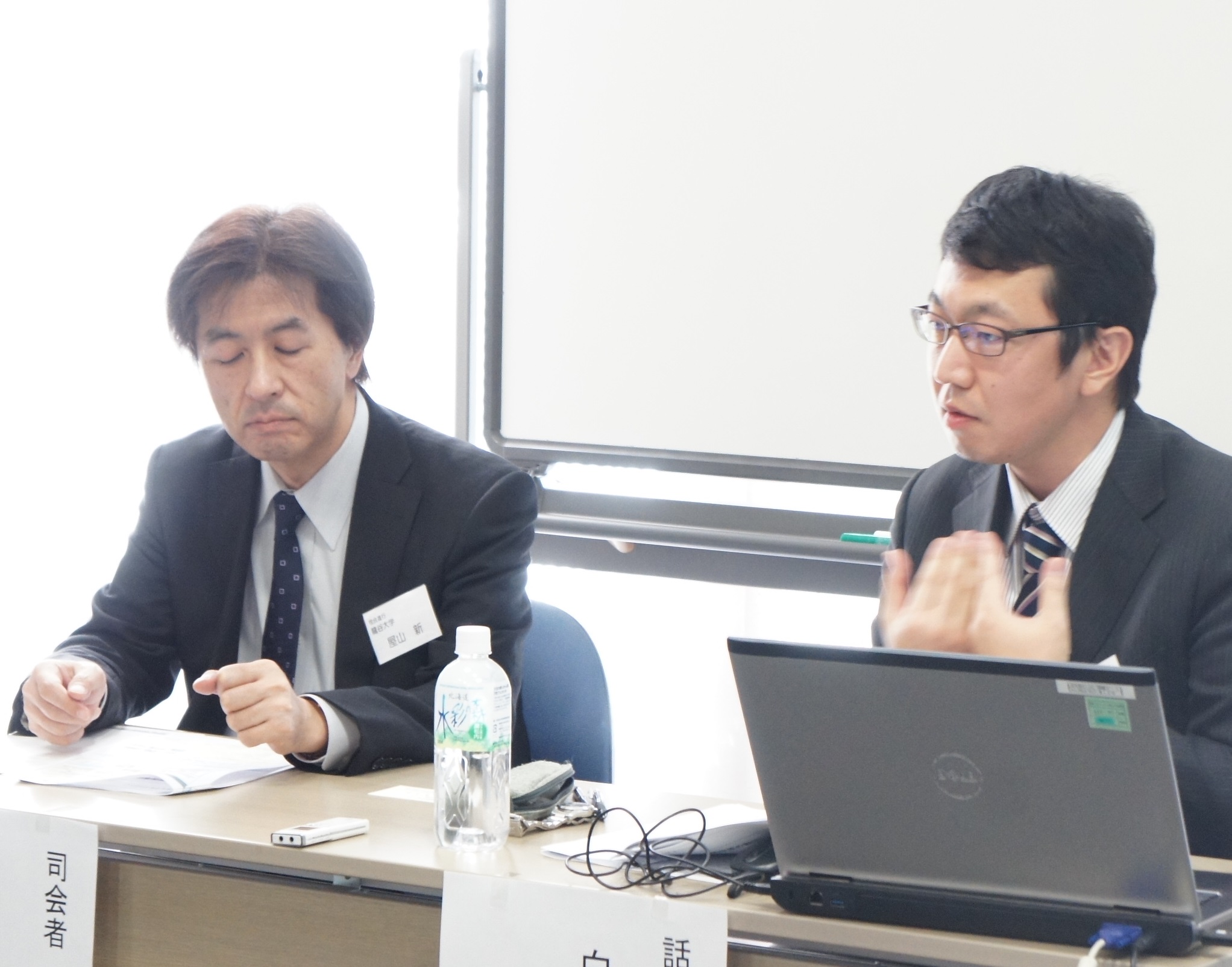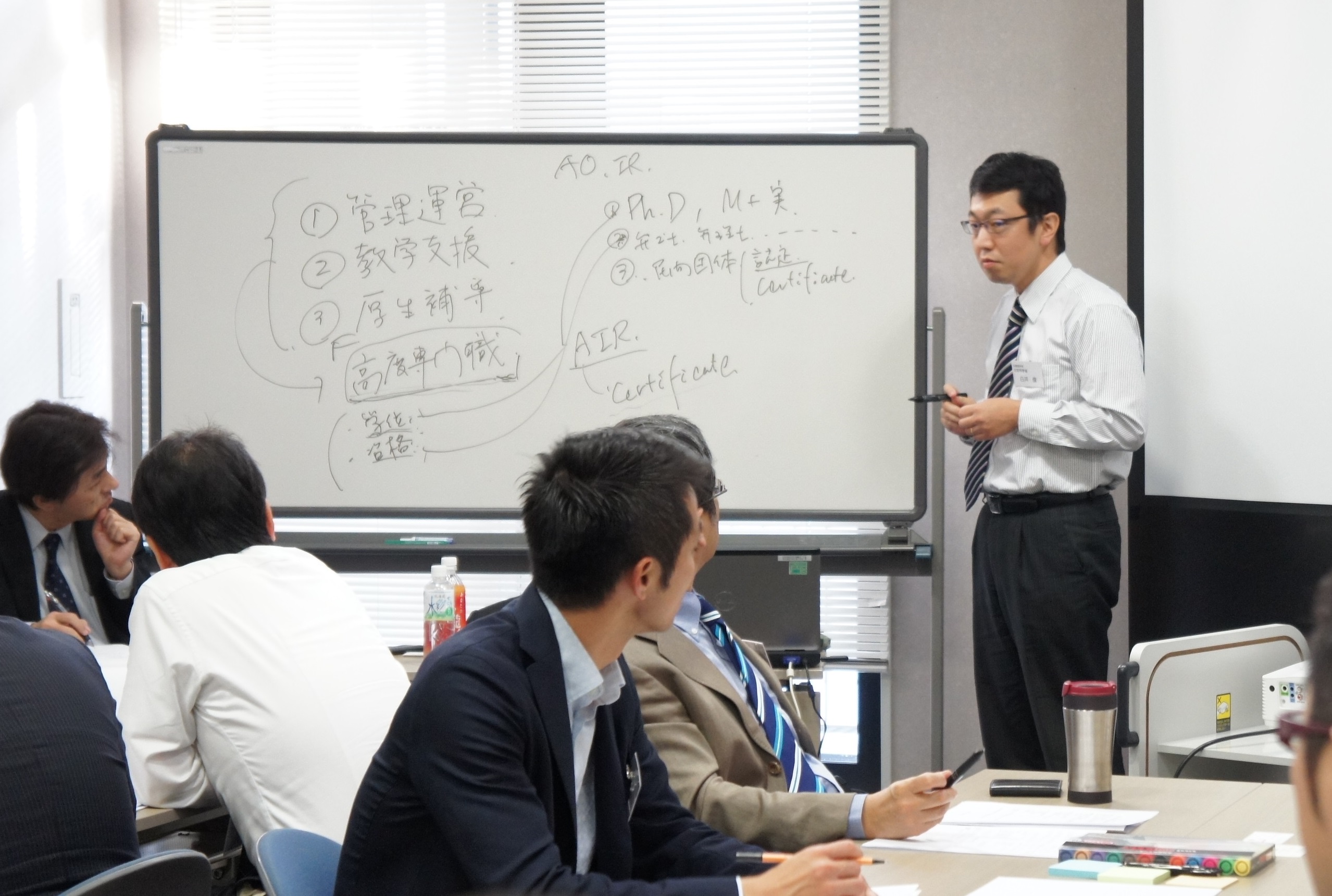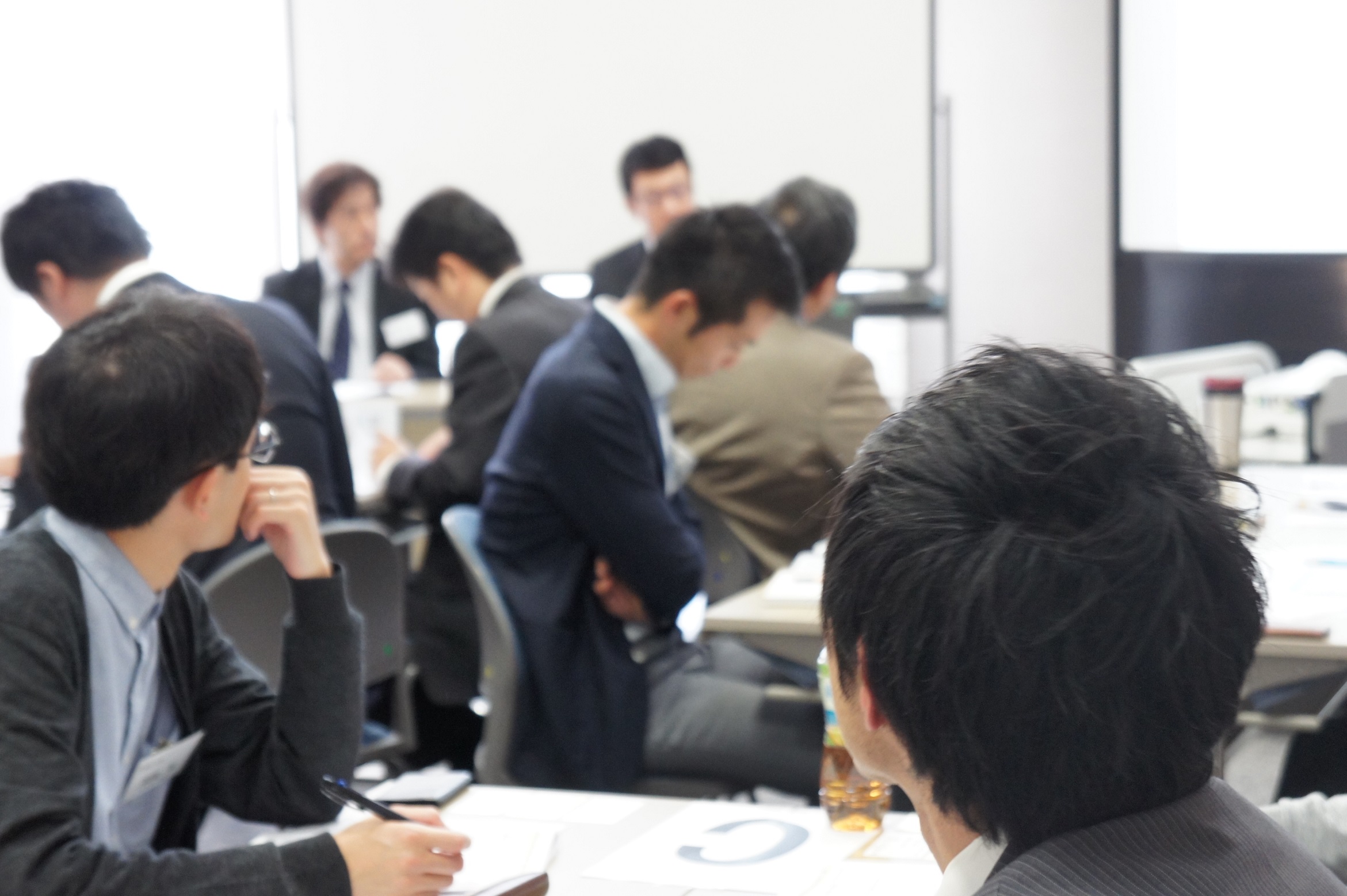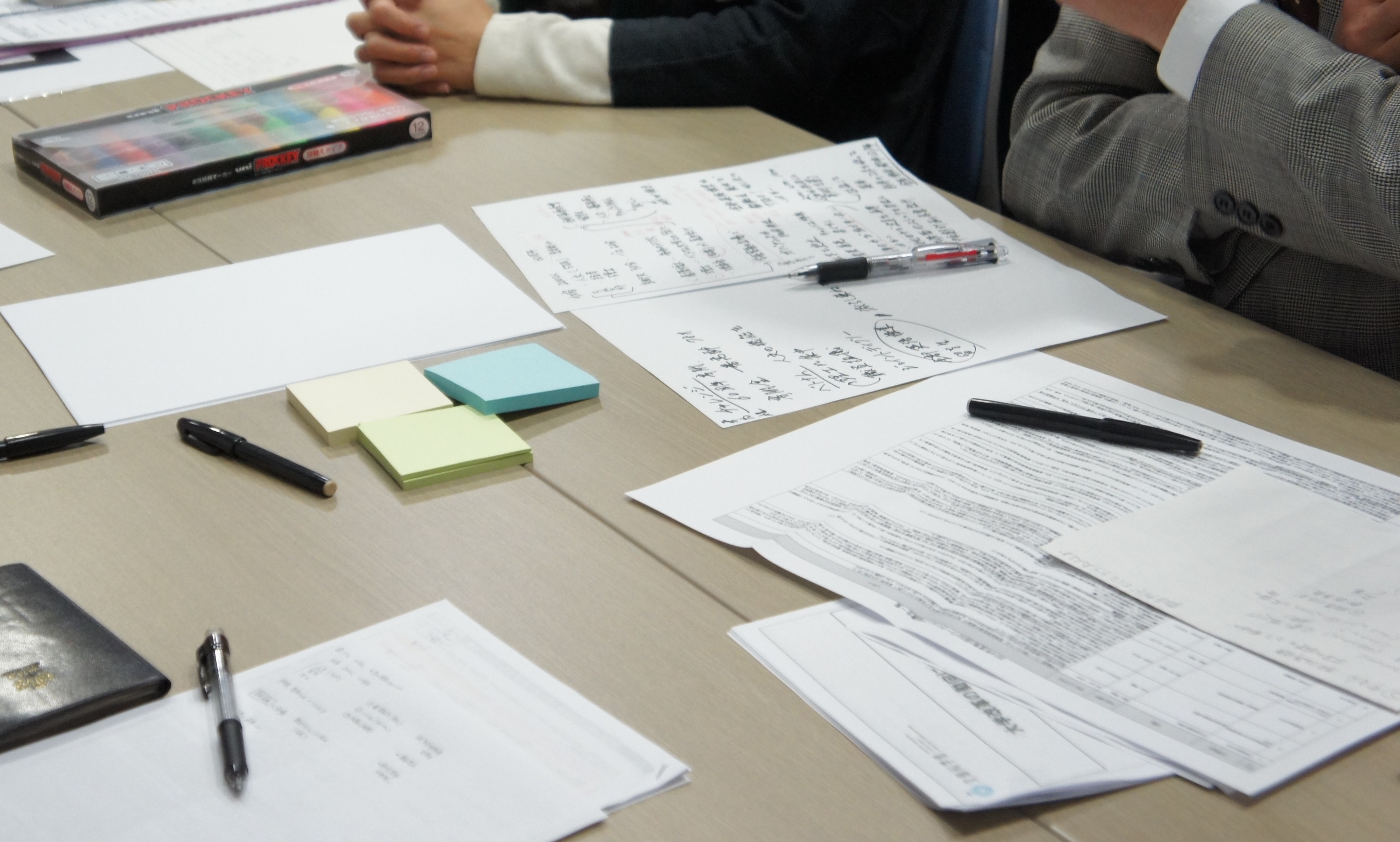Business Overview
In a situation where the environment surrounding universities is changing rapidly, the management and operation of universities has come to occupy an important position, and the role of university staff is becoming extremely important. In order to adapt to such an environment, we are developing a variety of projects to improve the qualifications of university staff, including management and education and research support.
In the SD workshop, students will make new discoveries, deepen their awareness, and create a network of human exchange that cannot be obtained through lectures through discussions with colleagues from other companies in the same industry (staff from other universities).
Outline of the event
| Venue: | Campus Plaza Kyoto | |
| Organizer | University Consortium Kyoto | |
| If | you are a university employee (non-university staff (faculty member, etc.), please contact us in advance. ) | |
| Participation fee: | 1,000 yen for | member universities |
| Non-member universities | : 2,000 yen | |
| Capacity: | 20 people each time (minimum number of participants: 5) * If there are a small number of applications, we will contact you separately. | |
Part 1: Let’s consider the asset of “time.” ~For work to be one of the things you can do~
Lecture 2: University Staff and Higher Education Policy ~How to Read Higher Education Policy~
Session 3: Staff Promoting Student Growth ~Beginning of Reflection Utilization~
Application
Please download the application form and send it to SD consortium.or.jp as an e-mail attachment. In addition, we will reply to the information after applying. If you do not receive the e-mail after a few days, please contact the University Consortium Kyoto SD Secretariat.
- 2014 1st SD Workshop Application Form [Closed]
- 2014 2nd SD Workshop Application Form [Closed]
- 2014 3rd SD Workshop Application Form [Closed]
Implementation Report
Report on the 3rd SD Workshop
On Saturday, December 20, 2014, as the third project of the SD Workshop 2014, “Staff Promoting Student Growth ~Beginning of Reflection Utilization~” was held, and a total of 20 people from 19 universities and junior colleges participated.
In the first half of the workshop, after an icebreaker (self-introductions by the participants), there was a lecture on reflection by Mr. Kawamen, the coordinator, followed by a dialogue between the participants. Next, using an idea generation method called mandalat, the participants presented their work experiences and opinions expressed by each group on the themes of “Students and Universities” and “Ideal Academic Collaboration.”
In the second half of the workshop, Mr. Murayama of Kyoto Bunkyo University gave a talk on the theme of “Academic Collaboration and Student Growth.” In addition to introducing practical examples of the “FSD Project” by volunteers such as faculty members and students of the university, “Worries and questions in academic collaboration” were cited from the participant’s preliminary report, and explanations and comments were made on the approach and theoretical background to solve the problem.
In addition, as a case study, a role-play exercise was conducted based on a hypothetical case study of student consultation on how to proceed with the school festival, and discussions and group presentations were held on what they noticed after the demonstration.
At the end of the session, the coordinator shared the organizer’s intentions for the training program and the overall aim of the training, and promoted understanding of the training.
The training was very meaningful, with many comments from the participants, such as “I have often had indigestion even after participating in various other workshops in the past, but this time I was very satisfied,” “I enjoyed working with people from other universities,” and “I was able to reaffirm the importance of both theory and practice for academic collaboration.”
This year’s event received a large number of requests not only from member schools but also from non-member schools. We would like to express our gratitude to everyone who participated and everyone who gave us their hopes.
As of this time, all SD workshops (3 workshops in total) in 2014 have come to an end.
The University Consortium Kyoto would like to organize workshops on attractive themes of high interest to university staff in the next academic year. We look forward to your continued participation.
Report on the 2nd SD Workshop
On Saturday, November 8, Mr. Shun Shirai, Assistant Director, University Promotion Division, Higher Education Bureau, Ministry of Education, Culture, Sports, Science and Technology, was invited as a speaker of the topic, and as the second project of the “SD Workshop Training 2014”, “University Staff and Higher Education Policy ~How to Read Higher Education Policy~” was held, with a total of 18 participants from various universities.
Schedule on the day
・Icebreaker (self-introduction by all participants)
・Topic provision
・Q&A
・Group work divided into 4 groups
・Presentations by representatives of each group
In the workshop, after an icebreaker (self-introductions by the participants), Mr. Shirai explained the current social situation of universities and recent trends in higher education policies and university reforms. After that, he gave an overview and progress on the four main issues that are currently being implemented, namely the development and internationalization of global human resources, the governance reform of universities, the review of the connection between high schools and universities, and regional revitalization using universities, as well as the social conditions behind these policies. In addition, he also mentioned points and tips for university staff to keep in mind when reading the higher education policy of the national government and the Ministry of Education, Culture, Sports, Science and Technology.
In the group work, we had a discussion about “highly skilled professionals” and a case study to think about a reform strategy for a fictitious university. Since there is no “right” answer to both tasks, each group expressed a variety of opinions in the group presentations. In response to these presentations, Mr. Shirai gave a detailed explanation based on the recent policies of the Ministry of Education, Culture, Sports, Science and Technology, reform trends at each university, and social conditions.
Participants commented, “It was a valuable opportunity to hear from the Ministry of Education, Culture, Sports, Science and Technology,” and “It was a very brain-intensive workshop and a stimulating time.” Such voices were received.
Part 1: Let’s consider the asset of “time.” ~For work to be one of the things you can do~
On Saturday, June 21, we invited Ms. Atsuko Nagai, Secretary General of the Yukawa Institute for Theoretical Physics, Kyoto University, as a topic contributor and held the first “SD Workshop Training 2014” workshop entitled “Thinking about the Asset of ‘Time’ ~For Work to Be One of the Rewards~”, which was attended by a total of 13 people from various universities.

●Schedule on the day
・Topic provision
・Q&A and exchange of opinions
・Icebreaker (arm wrestling tournament)
・Group discussion divided into 3 groups
・Presentations by participants
In the presentation of the topic, it was introduced that the workload of university staff is increasing year by year and the work environment is becoming more severe, while in a few years, the number of employees in their 30s ~ 40s who are in their prime working hours will be restricted due to parental care due to the aging of the society. As we enter an era in which the number of employees with “diverse work styles” such as childbirth, childcare, and balancing nursing care and work will increase, he talked about the importance of building an environment in which each employee can understand each other’s circumstances and be involved in their work efficiently with limited working hours, and maintaining a high level of motivation for each employee, increasing productivity, and making work time “free.”
In the group discussion, we were given a topic and summarized the opinions of each group on the conditions for a lazy time at work. In the summary, participants were given the task of searching for a way to change “painful time” into “lazy time” and thinking about the position of the “lazy work time” they found as a result in their own lives (life). “In my daily work, I am stuck in a vicious cycle because I don’t have enough time and mental space.” Participants who are aware of issues such as “I want to make my daily life more fulfilling” said, “I was able to exchange opinions with people from various universities.” “I was able to spend a fulfilling and useful time,” and “I would like to connect today’s story to my future work.” Positive impressions such as these were received.
Inquiries
University Consortium Kyoto SD Project
TEL 075-353-9163 FAX 075-353-9101
〒600-8216 Shimogyo-ku, Kyoto-shi, Nishitoin-dori, Shiokoji, Shimo-ku, Kyoto, Campus Plaza Kyoto
* Reception hours: Tuesday ~ Saturday 9:00 ~ 17:00 (excluding year-end and New Year holidays)














